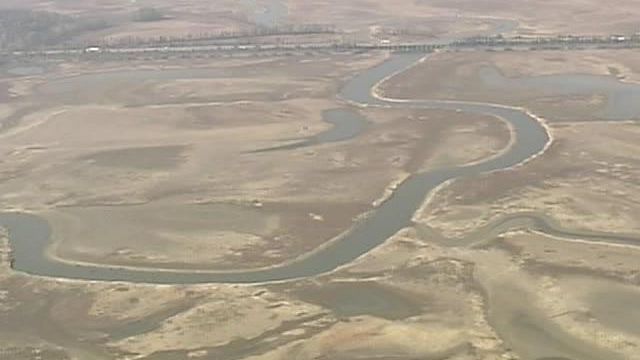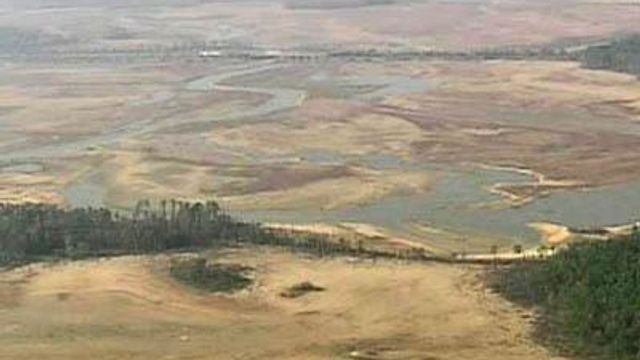Raleigh Pumps New Water to Neuse, Saving Falls Lake Flow
To extend the capacity of Raleigh's primary reservoir, officials are using other water to keep up Neuse River flows.
Posted — UpdatedThe U.S. Army Corps of Engineers, which controls Falls Lake, agreed to the switch. By sending 27 cubic feet per second from Lake Benson, the city will keep downstream flows intact for users there.
The switch came a day after Falls Lake, the city's primary reservoir, sank to an all-time low level. The water level has continued to drop despite recent rains and declining water consumption by area residents.
Tuesday, the Corps reported that Falls Lake was at 242.62 feet, which is 8.88 feet below full and 0.16 feet below the previous low, which was set on Nov. 27, 1993. Lakes levels are measured by their height above sea level.
The lake has at least 110 days of drinking water left, assuming there is no rain before March 10 and demand remains constant, officials said. Using Lake Benson to keep the river filled adds 21 days to the supply.
"I'm not worried about running out of water,” City Manager Russell Allen said. “It is at its lowest level, but we do have extended usage because of the lake, and extended days because our consumption is down.”
Residents in Raleigh and six Wake County towns that buy water from the city have cut consumption by 37 percent since restrictions were put in place in late August. The 30-day demand average is 41.5 million gallons a day, which is down 1.9 million gallons a day from a week ago, officials said.
Rainfall at the National Weather Service station at Raleigh-Durham International Airport is 7.7 inches below normal for the year, and there is little chance for significant rain across the region in the coming days.
"The thing that I've consistently said, the thing that we need to be conscious of, is that we must conserve during the winter months in case we don't get typical rains and we start in the spring with a lower level," Allen said.
Meanwhile, Durham has 63 days of drinking water left, officials said. The city's two main reservoirs – Lake Michie and Little River Reservoir – were 12.4 feet and 26.2 feet below full, respectively, on Tuesday. Residents are still being urged to conserve water. The city is close to reaching its goal of a 30 percent cut in water consumption.
At Jordan Lake – reservoir for Cary and Chatham County – levels are only 5 feet below full. Cary has year-round water restrictions, and Chatham County last month banned outdoor watering.
• Credits
Copyright 2024 by Capitol Broadcasting Company. All rights reserved. This material may not be published, broadcast, rewritten or redistributed.






